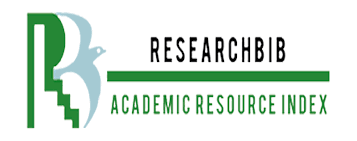Resiliência, bem-estar psicológico eudaimônico, depressão, ansiedade e estresse em adultos venezuelanos: um estudo preditivo
DOI:
https://doi.org/10.35622/j.rep.2023.03.004Palavras-chave:
ansiedade, bem-estar eudaimônico, depressão, estresse, resiliênciaResumo
O objetivo deste estudo foi avaliar um modelo preditivo de resiliência no bem-estar eudaimônico, tanto global quanto por dimensões, bem como a capacidade preditiva das variáveis acima mencionadas sobre depressão, ansiedade e estresse. Para tal, foi proposta uma investigação não experimental, por inquérito e transversal, especificamente de tipo preditivo, utilizando os questionários: DASS-21, Ryff's Psychological Well-being e CD RISC-10, os quais foram aplicados presencialmente a 229 adultos, com idade média de 48 anos e predominantemente mulheres (83%) na cidade de Caracas, Venezuela. Os resultados indicam que a resiliência pode prever o bem-estar global (β = 0,52), bem como o estresse (β = -0,15), enquanto o bem-estar global pode prever a depressão (β = -0,34), o estresse (β = -. 20) e ansiedade (β = -.21). Quando analisada de acordo com as dimensões do bem-estar, a resiliência é um melhor preditor de autoaceitação, propósito de vida e crescimento pessoal (β entre 0,40 e 0,55), e em menor medida as outras dimensões, por sua vez, autonomia, domínio do ambiente e relacionamentos positivos podem predizer ansiedade, estresse e depressão (β entre -.13 e -.23). Em termos gerais, a resiliência desempenha um papel importante na previsão do bem-estar eudaimónico, tanto a nível global como por dimensões, assim como o stress, parece também ser capaz de prever indiretamente a depressão e o stress através de algumas das dimensões do bem-estar, o que indica uma relação complexa ao estudar, bem como intervir nos sintomas associados ao desconforto psicológico. Além disso, são sugeridas algumas recomendações para estudos futuros.
Estadísticas del Artículo
Referências
Abbas, J., Aqeel, M., Abbas, J., Shaher, B., Jaffar, A., Sundas, J., & Zhang, W. (2019). The moderating role of social support for marital adjustment, depression, anxiety, and stress: Evidence from Pakistani working and nonworking women. Journal of Affective Disorders 244, 231–238. https://doi.org/10.1016/j.jad.2018.07.071 DOI: https://doi.org/10.1016/j.jad.2018.07.071
Abbott, R. A., Ploubidis, G. B., Huppert, F. A., Kuh, D., Wadsworth, M. E., & Croudace, T. J. (2006). Psychometric evaluation and predictive validity of Ryff's psychological well-being items in a UK birth cohort sample of women. Health and Quality of Life Outcomes, 4(1), 76. www.doi.org/10.1186/1477-7525-4-76 DOI: https://doi.org/10.1186/1477-7525-4-76
Aburn, G., Gott, M., & Hoare, K. (2016). What is resilience? An integrative review of the empirical literature. Journal of advanced nursing, 72(5), 980-1000. https://doi.org/10.1111/jan.12888 DOI: https://doi.org/10.1111/jan.12888
Akbari, A., & Khormaiee, F. (2015). The prediction of mediating role of resilience between psychological well-being and emotional intelligence in students. International Journal of School Health, 2(3), 1-5. https://doi.org/10.17795/intjsh-26238 DOI: https://doi.org/10.17795/intjsh-26238
Aloba, O., Olabisi, O., & Aloba, T. (2016). The 10-Item Connor–Davidson Resilience Scale. Journal of the American Psychiatric Nurses Association, 22(1), 43–51. https://doi.org/10.1177/1078390316629971 DOI: https://doi.org/10.1177/1078390316629971
American Psychological Association (2023a). Society for Health Psychology. https://www.apa.org/about/division/div38
American Psychological Association (2023b). Well-being. https://dictionary.apa.org/well-being
Aranguren, M., & Irrazabal, N. (2015). Estudio de las propiedades psicométricas de las escalas de bienestar psicológico de Ryff en una muestra de estudiantes argentinos. Ciencias psicológicas, 9(1), 73-83. https://doi.org/10.22235/cp.v9i1.168 DOI: https://doi.org/10.22235/cp.v9i1.168
Ato, M. & Vallejo, G. (2015). Diseños de investigación en Psicología. Ediciones Pirámide.
Balay-odao, E.M., Alquwez N., Inocian, E. P. & Alotaibi, R. S. (2021). Hospital Preparedness, Resilience, and Psychological Burden Among Clinical Nurses in Addressing the COVID-19 Crisis in Riyadh, Saudi Arabia. Frontiers in Public Health 8:573932. www.doi.org/10.3389/fpubh.2020.573932 DOI: https://doi.org/10.3389/fpubh.2020.573932
Bellali, T., Manomenidis, G., Meramveliotaki, E., Minasidou, E., & Galanis, P. (2020). The impact of anxiety and depression in the quality of life and psychological well-being of Greek hematological cancer patients on chemotherapy. Psychology, Health & Medicine, 25(2), 201-213. https://doi.org/10.1080/13548506.2019.1695864 DOI: https://doi.org/10.1080/13548506.2019.1695864
Bibi, A., Lin, M., Zhang, X., & Margraf, J. (2020). Psychometric properties and measurement invariance of Depression, Anxiety and Stress Scales ( DASS ‐21) across cultures. International Journal of Psychology, 55(6), 916–925. https://doi.org/10.1002/ijop.12671 DOI: https://doi.org/10.1002/ijop.12671
Burgos, A. V. (2012). Propiedades psicométricas de la Escala de Bienestar Psicológico y estructura factorial en universitarios chilenos. Psicoperspectivas, 11(2). https://doi.org/10.5027/psicoperspectivas-vol11-issue2-fulltext-196 DOI: https://doi.org/10.5027/psicoperspectivas-Vol11-Issue2-fulltext-196
Calvo, V., D’Aquila, C., Rocco, D., & Carraro, E. (2020). Attachment and well-being: Mediatory roles of mindfulness, psychological inflexibility, and resilience. Current Psychology 41, 2966-2979. www.doi.org/10.1007/s12144-020-00820-2 DOI: https://doi.org/10.1007/s12144-020-00820-2
Castor Muñoz, J. (2021). Bienestar Subjetivo-Hedónico y Psicológico-Eudaimónico y el uso de Protección para el Cuidado de la Salud Física en la Sexualidad. Journal of Behavior, Health & Social Issues, 13(1), 36–49 https://doi.org/10.22201/fesi.20070780e.2021.13.1.78074 DOI: https://doi.org/10.22201/fesi.20070780e.2021.13.1.78074
Campbell-Sills, L., Forde, D. R., & Stein, M. B. (2009). Demographic and childhood environmental predictors of resilience in a community sample. Journal of Psychiatric Research, 43(12), 1007–1012. https://doi.org/10.1016/j.jpsychires.2009.01.013 DOI: https://doi.org/10.1016/j.jpsychires.2009.01.013
Connor, K. M., & Davidson, J. R. (2003). Development of a new resilience scale: The Connor‐Davidson resilience scale (CD‐RISC). Depression and anxiety, 18(2), 76-82. https://doi.org/10.1002/da.10113 DOI: https://doi.org/10.1002/da.10113
Cook, E. & Wood, L. (2021). Health Psychology the basis. Routledge. DOI: https://doi.org/10.4324/9781315447766
Daza, P., Novy, D. M., Stanley, M. A., & Averill, P. (2002). The depression anxiety stress scale-21: Spanish translation and validation with a Hispanic sample. Journal of psychopathology and behavioral assessment, 24, 195-205. https://doi.org/10.1023/A:1016014818163 DOI: https://doi.org/10.1023/A:1016014818163
De Paula Couto, M. C. P., Koller, S. H., & Novo, R. (2011). Stressful Life Events and Psychological Well-being in a Brazilian Sample of Older Persons: The Role of Resilience. Ageing International, 36(4), 492–505. www.doi.org/10.1007/s12126-011-9123-2 DOI: https://doi.org/10.1007/s12126-011-9123-2
Delgado, C., Roche, M., Fethney, J., & Foster, K. (2021). Mental health nurses’ psychological well‐being, mental distress, and workplace resilience: A cross‐sectional survey. International Journal of Mental Health Nursing, 30(5), 1234–1247. www.doi.org/10.1111/inm.12874 DOI: https://doi.org/10.1111/inm.12874
Díaz, D., Rodríguez-Carvajal, R., Blanco, A., Moreno-Jiménez, B., Gallardo, I., Valle, C., & Van Dierendonck, D. (2006). Adaptación española de las escalas de bienestar psicológico de Ryff. Psicothema, 18(3), 572-577. https://www.psicothema.com/pdf/3255.pdf
García, D., & Ollarves, E. (2013). Bienestar psicológico, inteligencia emocional y disposición a fluir en docentes universitarios. [Trabajo de Licenciatura]. Universidad Rafael Urdaneta.
González-Rivera, J. A., Pagán-Torres, O. M., & Pérez-Torres, E. M. (2020). Depression, Anxiety and Stress Scales (DASS-21): Construct Validity Problem in Hispanics. European Journal of Investigation in Health, Psychology and Education, 10(1), 375–389. https://doi.org/10.3390/ejihpe10010028 DOI: https://doi.org/10.3390/ejihpe10010028
Hernández Hernández, M. (2016) Bienestar subjetivo, bienestar psicológico y significación vital en personas en situación de desempleo. [Trabajo de Licenciatura]. Universidad de la Laguna.
Hernández Sampieri, R. y Mendoza Torres, C. P. (2018). Metodología de la Investigación: Las rutas cuantitativa, cualitativa y mixta. McGraw Hill.
Howitt, D. & Cramer, D. (2020). Research Methods in Psychology (6th ed.). Pearson.
Huta, V. (2017). An overview of hedonic and eudaimonic well-being concepts. En L. Reinecke & M. B. Oliver (Eds.), The Routledge handbook of media use and well-being: International perspectives on theory and research on positive media effects (pp. 14–33). https://doi.org/10.4324/9781315714752 DOI: https://doi.org/10.4324/9781315714752
Jamovi project. (2023). Jamovi (Version 2.3). [Software de cómputo]. https://www.jamovi.org
Kyriazos, T., & Stalikas, A. (2021). Psychometric Evidence of the 10-Item Connor-Davidson Resilience Scale (CD-RISC10, Greek Version) and the Predictive Power of Resilience on Well-Being and Distress. Open Journal of Social Sciences, 9(11), 280-308. https://doi.org/10.4236/jss.2021.911022 DOI: https://doi.org/10.4236/jss.2021.911022
Lenzo, V., Quattropani, M. C, Musetti, A., Zenesini, C., Freda, M. F., Lemmo, D., Vegni, E., Borghi, L., Plazzi, G., Castelnuovo, G., Cattivelli, R., Saita, E. & Franceschini, C. (2020). Resilience Contributes to Low Emotional Impact of the COVID-19 Outbreak Among the General Population in Italy. Frontiers in Psychology, 11:576485. www.doi.org/10.3389/fpsyg.2020.576485 DOI: https://doi.org/10.3389/fpsyg.2020.576485
Lindfors, P. (2002). Positive Health in a Group of Swedish White-Collar Workers. Psychological Reports, 91(3), 839–845. www.doi.org/10.2466/pr0.2002.91.3.839 DOI: https://doi.org/10.2466/pr0.2002.91.3.839
Long, K. & Bonanno, G. (2019). The Temporal Elements of Psychological Resilience to Potencial Trauma. En K. L. Harknes & E. Hayden. The Oxford Handbook of Stress and Mental Health (pp. 625-642). https://doi.org/10.1093/oxfordhb/9780190681777.013.29 DOI: https://doi.org/10.1093/oxfordhb/9780190681777.013.29
Lopes, A. R., & Nihei, O. K. (2021). Depression, anxiety and stress symptoms in Brazilian university students during the COVID-19 pandemic: Predictors and association with life satisfaction, psychological well-being and coping strategies. PLoS one, 16(10), e0258493. https://doi.org/10.1371/journal.pone.0258493 DOI: https://doi.org/10.1371/journal.pone.0258493
Lovibond, S. H., & Lovibond, P. F. (1995). Manual for the Depression Anxiety Stress Scale. The Psychological Foundation of Australia, Sydney. DOI: https://doi.org/10.1037/t01004-000
Lugo, S. G., Romero, J. C. G., & Hernández, E. R. V. (2018). Apoyo social y resiliencia: predictores de bienestar psicológico en adolescentes con suceso de vida estresante. Psicología y Salud, 28(2), 167-176. https://orcid.org/0000-0003-4250-7750 DOI: https://doi.org/10.25009/pys.v28i2.2553
Ma, A., Yang, Y., Guo, S., Li, X., Zhang, S., & Chang, H. (2022). Adolescent resilience and mobile phone addiction in Henan Province of China: Impacts of chain mediating, coping style. Plos one, 17(12), e0278182. https://doi.org/10.1371/journal.pone.0278182 DOI: https://doi.org/10.1371/journal.pone.0278182
Maddux, J. E. (2017). Subjective well-being and life sa-tisfaction. An introduction to conceptions, theories, and measures. En J. E. Maddux (Ed.). Subjective Well-Being and Life Satisfaction (pp. 3-32). www.doi.org/10.4324/9781351231879 DOI: https://doi.org/10.4324/9781351231879-1
Masten, A. S. (2001). Ordinary magic: Resilience processes in development. American Psychologist, 56(3), 227–238. www.doi.org/10.1037/0003-066x.56.3.227 DOI: https://doi.org/10.1037//0003-066X.56.3.227
Masten, A. S., Lucke, C. M., Nelson, K. M., & Stallworthy, I. C. (2021). Resilience in development and psychopathology: Multisystem perspectives. Annual Review of Clinical Psychology, 17, 521-549. https://doi.org/10.1146/annurev-clinpsy-081219-120307 DOI: https://doi.org/10.1146/annurev-clinpsy-081219-120307
Mayordomo, T., Viguer, P., Sales, A., Satorres, E., & Meléndez, J. C. (2016). Resilience and Coping as Predictors of Well-Being in Adults. The Journal of Psychology, 150(7), 809–821. www.doi.org/10.1080/00223980.2016.1203276 DOI: https://doi.org/10.1080/00223980.2016.1203276
Nesselroade, K. P. Jr. & Grimm, L. G. (2019). Social Applications for the Behavioral and Social Sciences (2 ed.). Wiley. DOI: https://doi.org/10.1002/9781119531708
Notario-Pacheco, B., Solera-Martínez, M., Serrano-Parra, M.D., Bartolomé-Gutiérrez, R. B., García-Campayo, J., & Martínez-Vizcaíno, V. (2011). Reliability and validity of the Spanish version of the 10-item Connor-Davidson Resilience Scale (10-item CD-RISC) in young adults. Health Qual Life Outcomes 9(63). https://doi.org/10.1186/1477-7525-9-63. DOI: https://doi.org/10.1186/1477-7525-9-63
Reyes, M.-F., Satorres, E., & Meléndez, J. C. (2019). Resilience and Socioeconomic Status as Predictors of Life Satisfaction and Psychological Well-Being in Colombian Older Adults. Journal of Applied Gerontology, 39(3), 1-17. www.doi.org/10.1177/0733464819867554 DOI: https://doi.org/10.1177/0733464819867554
Ruini, C., & Cesetti, G. (2019). Spotlight on eudaimonia and depression. A systematic review of the literature over the past 5 years. Psychology Research and Behavior Management 12, 767-792. www.doi.org/10.2147/PRBM.S178255 DOI: https://doi.org/10.2147/PRBM.S178255
Ruini, C., & Ryff, C. D. (2016). Using Eudaimonic Well-being to Improve Lives. En A. M. Wood & J. Johnson (Eds). The Wiley Handbook of Positive Clinical Psychology (pp. 153–166). www.doi.org/10.1002/9781118468197.ch11 DOI: https://doi.org/10.1002/9781118468197.ch11
Ryan, D., Tornberg-Belanger, S. N., Perez, G., Maurer, S., Price, C. J., Rao, D., Chan, K. C. G., & Ornelas, I. J. (2021). Stress, social support and their relationship to depression and anxiety among Latina immigrant women. Journal of Psychosomatic Research, 149, 110588. https://doi.org/10.1016/j.jpsychores.2021.110588 DOI: https://doi.org/10.1016/j.jpsychores.2021.110588
Ryff, C. (2018). Eudaimonic Well‐being Highlights from 25 Years of Inquiry. En K.Shigemasu, S. Kuwano, T. Sato, T. Matsuzawa (Eds.), Diversity in Harmony – Insights from Psychology: Proceedings of the 31st International Congress of Psychology. (pp. 375-395). www.doi.org/10.1002/9781119362081 DOI: https://doi.org/10.1002/9781119362081.ch20
Ryff, C. D. (1989). Happiness is everything, or is it? Explorations on the meaning of psychological well-being. Journal of Personality and Social Psychology, 57(6), 1069–1081. www.doi.org/10.1037/0022-3514.57.6.1069 DOI: https://doi.org/10.1037//0022-3514.57.6.1069
Ryff, C. D. (2013). Psychological well-being revisited: Advances in the science and practice of eudaimonia. Psychotherapy and psychosomatics, 83(1), 10-28. https://doi.org/10.1159/000353263 DOI: https://doi.org/10.1159/000353263
Ryff, C. D., & Keyes, C. L. M. (1995). The structure of psychological well-being revisited. Journal of Personality and Social Psychology, 69(4), 719–727. www.doi.org/10.1037/0022-3514.69.4.719 DOI: https://doi.org/10.1037//0022-3514.69.4.719
Souri, H., & Hasanirad, T. (2011). Relationship between Resilience, Optimism and Psychological Well-Being in Students of Medicine. Procedia - Social and Behavioral Sciences, 30, 1541–1544. www.doi.org/10.1016/j.sbspro.2011.10.299 DOI: https://doi.org/10.1016/j.sbspro.2011.10.299
Tabachnick, B. G. & Fidell, L. S. (2019). Using Multivariate Statistics. Pearson.
Tan, Y., Huang, C., Geng, Y., Cheung, S., & Zhang, S. (2021). Psychological Well-Being in Chinese College Students During the COVID-19 Pandemic: Roles of Resilience and Environmental Stress. Frontiers in Psychology, 12. https://doi.org/10.3389/fpsyg.2021.671553 DOI: https://doi.org/10.3389/fpsyg.2021.671553
Tomás, J. M., Sancho, P., Melendez, J. C., & Mayordomo, T. (2012). Resilience and coping as predictors of general well-being in the elderly: A structural equation modeling approach. Aging & Mental Health, 16(3), 317–326. www.doi.org/10.1080/13607863.2011.615737 DOI: https://doi.org/10.1080/13607863.2011.615737
Traunmüller, C., Stefitz, R., Schneider, M., & Schwerdtfeger, A. (2021). Resilience moderates the relationship between the psychological impact of COVID-19 and anxiety. Psychology, Health & Medicine, 1–12. www.doi.org/10.1080/13548506.2021.1955137 DOI: https://doi.org/10.1080/13548506.2021.1955137
Van Dierendonck, D. (2004). The construct validity of Ryff’s Scales of Psychological Well-being and its extension with spiritual well-being. Personality and Individual Differences, 36(3), 629–643. www.doi.org/10.1016/s0191-8869(03)00122-3 DOI: https://doi.org/10.1016/S0191-8869(03)00122-3
Vera-Villarroel, P., Urzúa M., A., Silva, J. R., Pavez, P., & Celis-Atenas, K. (2013). Escala de Bienestar de Ryff: Análisis comparativo de los modelos teóricos en distintos grupos de edad. Psicologia: Reflexão e Crítica, 26(1), 106–112. https://doi.org/10.1590/S0102-79722013000100012 DOI: https://doi.org/10.1590/S0102-79722013000100012
Wilson, J. C., & Strevens, C. (2018). Perceptions of psychological well-being in UK law academics. The Law Teacher, 52(3), 335–349. www.doi.org/10.1080/03069400.2018.1468004 DOI: https://doi.org/10.1080/03069400.2018.1468004
Wood, A. M., & Joseph, S. (2010). The absence of positive psychological (eudemonic) well-being as a risk factor for depression: A ten year cohort study. Journal of Affective Disorders, 122(3), 213–217. www.doi.org/10.1016/j.jad.2009.06.032 DOI: https://doi.org/10.1016/j.jad.2009.06.032
Publicado
Edição
Seção
Licença
Copyright (c) 2023 Luis Rodríguez-Chávez, Ricardo Cabrera-Porras (Autor/a)

Este trabalho está licenciado sob uma licença Creative Commons Attribution 4.0 International License.
La Revista Estudios Psicológicos del Instituto Universitario de Innovación Ciencia y Tecnología Inudi Perú está sobre una licencia internacional Creative Commons Atribución 4.0. Lo que permite que los archivos sean de libre acceso y distribuidos libremente.
LOS AUTORES RETIENEN SUS DERECHOS:
- Los autores retienen sus derechos de marca y patente, y tambien sobre cualquier proceso o procedimiento descrito en el artículo.
- Los autores retienen el derecho de compartir, copiar, distribuir, ejecutar y comunicar públicamente el artículo publicado en la Revista Estudios Psicológicos (por ejemplo, colocarlo en un repositorio institucional o publicarlo en un libro), con un reconocimiento de su publicación inicial.
- Los autores retienen el derecho a hacer una posterior publicación de su trabajo, de utilizar el artículo o cualquier parte de aquel (por ejemplo: una compilación de sus trabajos, notas para conferencias, tesis, o para un libro), siempre que indiquen la fuente de publicación (autores del trabajo, revista, volumen, número y fecha).



















